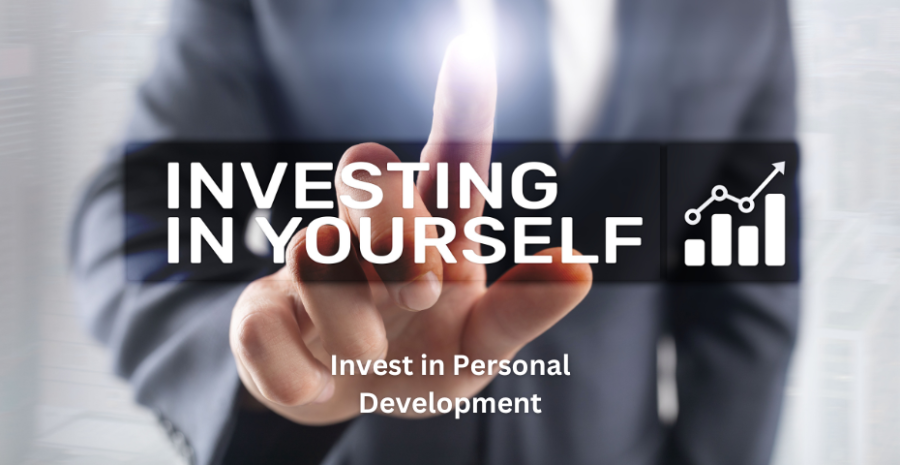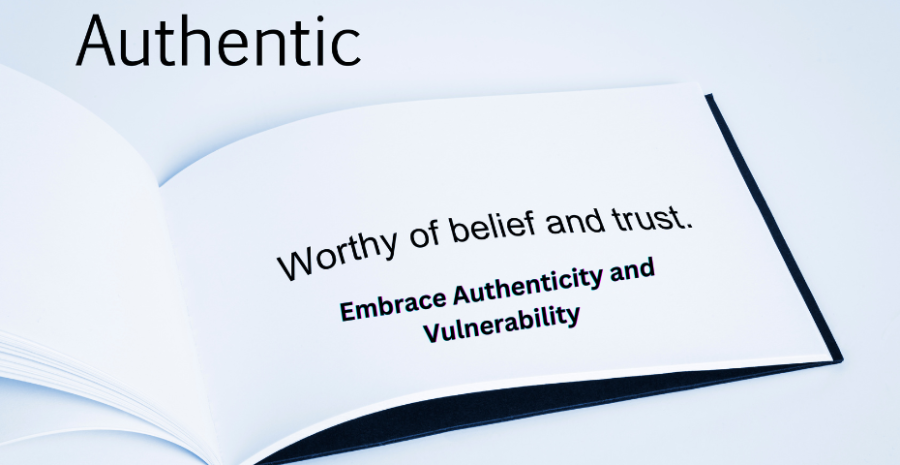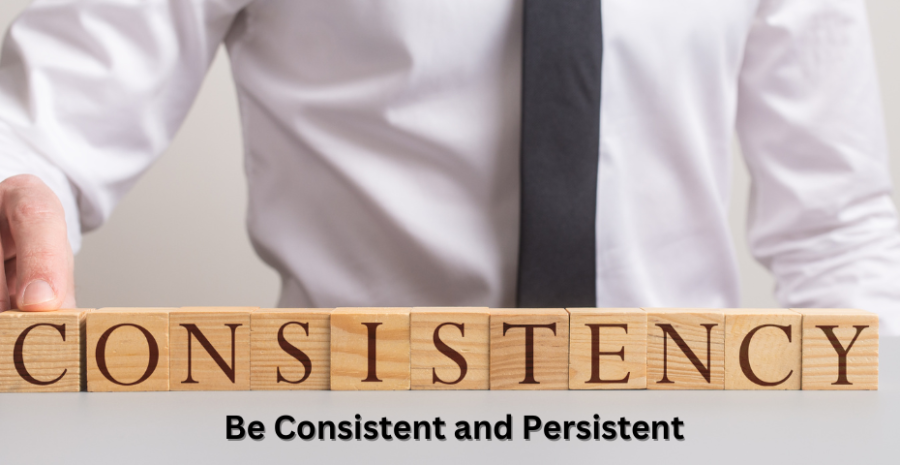The Best Way to Brand Yourself as an Entrepreneur for Success

In today’s competitive business landscape, branding yourself as an entrepreneur is more crucial than ever. Your personal brand is not just about what you do; it's about who you are, what you stand for, and how you differentiate yourself in the marketplace.
In a world where first impressions are often made online, establishing a strong, authentic personal brand can be the key to unlocking new opportunities, building credibility, and gaining the trust of your target audience. A well-crafted personal brand can set you apart from the competition, position you as an expert in your field, and make you a magnet for new business ventures.
However, building such a brand is no easy feat; it requires a strategic approach, consistency, and a deep understanding of your unique value proposition.
In this blog, we'll explore the best ways to brand yourself as an entrepreneur, covering essential strategies and actionable tips that will help you stand out, make an impact, and ultimately, achieve success in your entrepreneurial journey.
1. Define Your Unique Value Proposition (UVP)
(2).png)
The cornerstone of successful branding is a clear understanding of what makes you unique. Your Unique Value Proposition (UVP) is the foundation upon which your personal brand is built. It’s a concise statement that explains what sets you apart from others in your industry.
To define your UVP, start by identifying your strengths, skills, and the specific problems you solve for your clients or customers. Consider what you bring to the table that others do not. This could be a unique skill set, a specific experience, or a distinctive perspective.
Once you've identified these elements, craft a compelling UVP that clearly communicates your unique value to your target audience. Your UVP should be integrated into all aspects of your branding, from your website and social media profiles to your elevator pitch and marketing materials.
2. Create a Consistent Brand Identity

Consistency is key to building a strong personal brand. Your brand identity includes your visual elements, such as your logo, color scheme, and typography, as well as your tone of voice, messaging, and overall brand personality. These elements should be consistent across all platforms and communication channels.
Consistency helps to reinforce your brand in the minds of your audience and creates a sense of reliability and professionalism. To achieve this, create a brand style guide that outlines the visual and verbal components of your brand.
This guide should serve as a reference for any content or materials you produce, ensuring that everything aligns with your brand's identity. Over time, this consistency will help to build brand recognition and trust among your audience.
3. Build a Strong Online Presence
.png)
In the digital age, your online presence is often the first impression people have of you. As an entrepreneur, it's essential to establish a strong, professional online presence that reflects your brand. Start by creating a professional website that showcases your expertise, experience, and the services or products you offer.
Your website should be well-designed, easy to navigate, and optimized for search engines. In addition to your website, it's important to be active on social media platforms where your target audience is most engaged. Consistently sharing valuable content, interacting with your followers, and showcasing your expertise will help to strengthen your online presence.
Remember, your online presence should be an authentic representation of your brand, so be sure to stay true to your values and personality in all your digital interactions.
4. Leverage Content Marketing to Showcase Your Expertise

Content marketing is a powerful tool for building your personal brand and establishing yourself as an expert in your field. By creating and sharing high-quality content that provides value to your audience, you can demonstrate your knowledge, skills, and expertise.
This content can take many forms, including blog posts, articles, videos, podcasts, webinars, and social media posts. The key is to consistently produce content that is relevant to your audience's needs and interests. Additionally, consider guest posting on reputable industry blogs, contributing to online forums, or speaking at events to further establish your authority.
Over time, content marketing will help to build your credibility, attract new followers, and position you as a thought leader in your industry.
5. Network and Build Relationships
.png)
Networking is a crucial component of personal branding. Building and maintaining relationships with others in your industry can open doors to new opportunities, collaborations, and partnerships. Attend industry events, conferences, and networking functions to meet like-minded professionals and potential clients.
When networking, focus on building genuine connections rather than just trying to promote yourself. Be interested in others, listen to their stories, and offer value where you can. Additionally, don't underestimate the power of online networking.
Platforms like Markethive and LinkedIn provide an excellent opportunity to connect with professionals, share your expertise, and stay updated on industry trends. Remember, your network is an extension of your brand, so invest time in nurturing these relationships.
6. Seek Out Mentorship and Coaching

No matter how experienced you are, there's always room for growth. Seeking out mentorship or coaching can provide valuable insights and guidance as you build your personal brand.
A mentor or coach can offer an outside perspective, help you identify areas for improvement, and provide support as you navigate the challenges of entrepreneurship. Look for mentors who have experience in your industry and whose values align with your own.
Additionally, consider joining mastermind groups or entrepreneurial communities where you can learn from others and share your experiences. The advice and support you receive from mentors and coaches can be instrumental in helping you refine your brand and achieve your business goals.
7. Harness the Power of Storytelling

Storytelling is a powerful tool for connecting with your audience on a deeper level. Your personal story, including your journey, challenges, and successes, can make your brand more relatable and memorable. People are naturally drawn to stories because they evoke emotions and create a sense of connection.
When crafting your brand story, focus on authenticity and transparency. Share the experiences that have shaped you as an entrepreneur, the lessons you've learned, and the values that drive you. Your story should align with your brand's mission and vision, and it should resonate with your target audience.
By sharing your story, you can create a more meaningful connection with your audience and differentiate yourself from competitors.
8. Invest in Personal Development

Personal development is an ongoing process that plays a critical role in your personal branding. As an entrepreneur, it's important to continuously invest in yourself by acquiring new skills, knowledge, and experiences.
This could involve taking courses, attending workshops, reading books, or seeking out new challenges that push you outside of your comfort zone. The more you grow and develop, the more value you can offer to your audience and clients.
Personal development also helps to keep your brand relevant and up-to-date in an ever-evolving marketplace. By prioritizing your growth, you demonstrate a commitment to excellence, which enhances your credibility and reinforces your brand as one that is always striving to improve.
9. Embrace Authenticity and Vulnerability

Authenticity and vulnerability are essential components of a strong personal brand. In a world where consumers are increasingly skeptical of overly polished and curated personas, being authentic can set you apart. Embrace your true self, including your strengths, weaknesses, and quirks.
Don't be afraid to share your struggles and failures, as these experiences can make you more relatable and human. Being vulnerable doesn't mean sharing every detail of your life, but rather being open and honest about your journey as an entrepreneur.
When you're authentic, you build trust with your audience, and trust is the foundation of any successful brand. Remember, people connect with people, not brands, so let your true self shine through in everything you do.
10. Be Consistent and Persistent

Building a strong personal brand takes time and effort, and consistency is key. Your brand should be reflected in everything you do, from the way you communicate to the content you share and the experiences you provide to your clients.
Consistency in your messaging, visual identity, and actions helps to build trust and recognition over time. Persistence is equally important. There will be challenges and setbacks along the way, but staying committed to your brand and your goals will pay off in the long run.
Remember, personal branding is a marathon, not a sprint. Keep showing up, keep delivering value, and keep refining your brand as you grow and evolve as an entrepreneur.
11. Measure Your Brand’s Impact and Adjust as Needed

Just like any business strategy, your personal branding efforts should be measured and evaluated regularly. Set clear goals for your brand, such as increasing your online following, gaining media exposure, or attracting new clients.
Use analytics tools to track your progress and gather insights into what's working and what isn't. Pay attention to engagement metrics, such as social media interactions, website traffic, and feedback from your audience. If certain strategies aren't yielding the desired results, be willing to adjust your approach.
Personal branding is an ongoing process, and it's important to remain flexible and open to change. By regularly evaluating your brand's impact, you can make informed decisions that keep your brand strong and relevant.
12. Give Back and Build a Legacy

Finally, consider how you can use your personal brand to make a positive impact on others and build a lasting legacy. Giving back to your community, whether through mentoring, philanthropy, or sharing your knowledge, can enhance your brand's reputation and create meaningful connections.
Your legacy is not just about what you achieve in your career, but also about the impact you have on others. Think about the values you want to be remembered for and how you can incorporate those into your brand. Building a legacy requires a long-term vision and a commitment to making a difference beyond your own success.
By giving back, you not only strengthen your brand but also create a lasting impact that extends far beyond your entrepreneurial journey.
Conclusion
Branding yourself as an entrepreneur is a multifaceted process that requires intentionality, consistency, and a deep understanding of your unique value. It’s about more than just creating a logo or a catchy tagline; it’s about building a reputation, establishing trust, and creating meaningful connections with your audience.
By defining your unique value proposition, maintaining a consistent brand identity, leveraging content marketing, and building strong relationships, you can create a personal brand that stands out in the crowded entrepreneurial landscape.
Embrace authenticity, invest in personal development, and be willing to adapt and evolve as you grow. Ultimately, a strong personal brand is not just about achieving success in your career; it's about leaving a legacy and making a positive impact on others.
With the right strategies and mindset, you can build a brand that not only propels you to success but also resonates with others and stands the test of time.
(7).png)
About: Andries vanTonder (65)
45 years selfemployed
He is a Serial Entrepreneur, an Enthusiastic supporter of Blockchain Technology and a Cryptocurrency Investor
Find me: Markethive Profile Page | My Twitter Account | My Instagram Acount | and my Facebook Profile.
Markethive News
.gif)
%20(1).png)